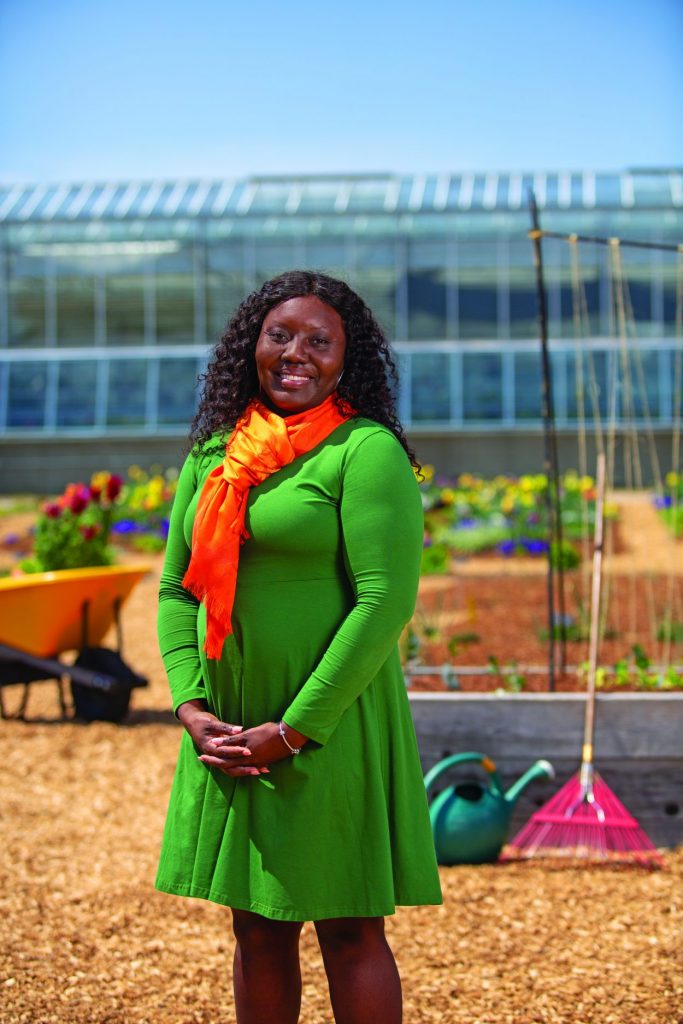Grassroots Urban Gardener
Cucumbers. Tomatoes. Strawberries and collards. Big plans are underway to infuse the community garden at Peter Paul Development Center (PPDC) in Church Hill. Lakeshia Allen, a former engagement coordinator at PPDC and a Ginter Urban Gardener graduate says, “I wanted residents who live here to buy into this garden by creating the list of what we’ll grow. I also want to show them they don’t have to wait for food distribution to get fresh fruits and vegetables.”

“Ginter Urban Gardener resources are so rich,” says Lakesha Allen, a graduate of the second cohort. “And the impact isn’t just for now; it’s ongoing!”
This neighborhood, in Richmond’s East End, is characterized by the highest concentration of poverty in the city. During her tenure with PPDC, Lakeshia worked directly with food distribution, mainly from FeedMore, which occurs twice a month and reaches more than 700 individuals from the neighborhood. Lakeshia notes that sometimes it’s just enough food for a week.
Urban Gardener
“My hope is that those who come to food distribution will now grow their own vegetables and fruits … and take more ownership in the community garden,” she says. “This bridge between food distribution and the garden’s offerings will teach our community about living a healthy lifestyle. They’ll also learn about portion control and healthy ways to use fresh food.”
The Center’s youth are already planning an ingenious use of the harvested collards: healthy green smoothies!
Transformations Take Root
In part, RVA’s recent urban-gardening successes stem from graduates of Beautiful RVA’s Ginter Urban Gardener program. These volunteer project leaders deploy their horticulture and community trust-building skills to help citizens work together to establish or improve upon community gardens and urban-greening initiatives. The training curriculum was developed by Duron Chavis, Lewis Ginter’s community engagement manager. His culturally relevant approach focuses on racial equity and a philosophy of working with, not doing for, communities. Rather than white-led nonprofits serving communities of color, he teaches Urban Gardeners how to empower communities, build authentic relationships, and transform the environment in sustainable ways. “Greenspaces integrate people into a social fabric that creates unity and community pride,” Duron says. Urban gardening also brings to life Lewis Ginter’s vision of connecting people through plants to improve communities.
As published in “Lewis Ginter Magazine,” Summer 2018